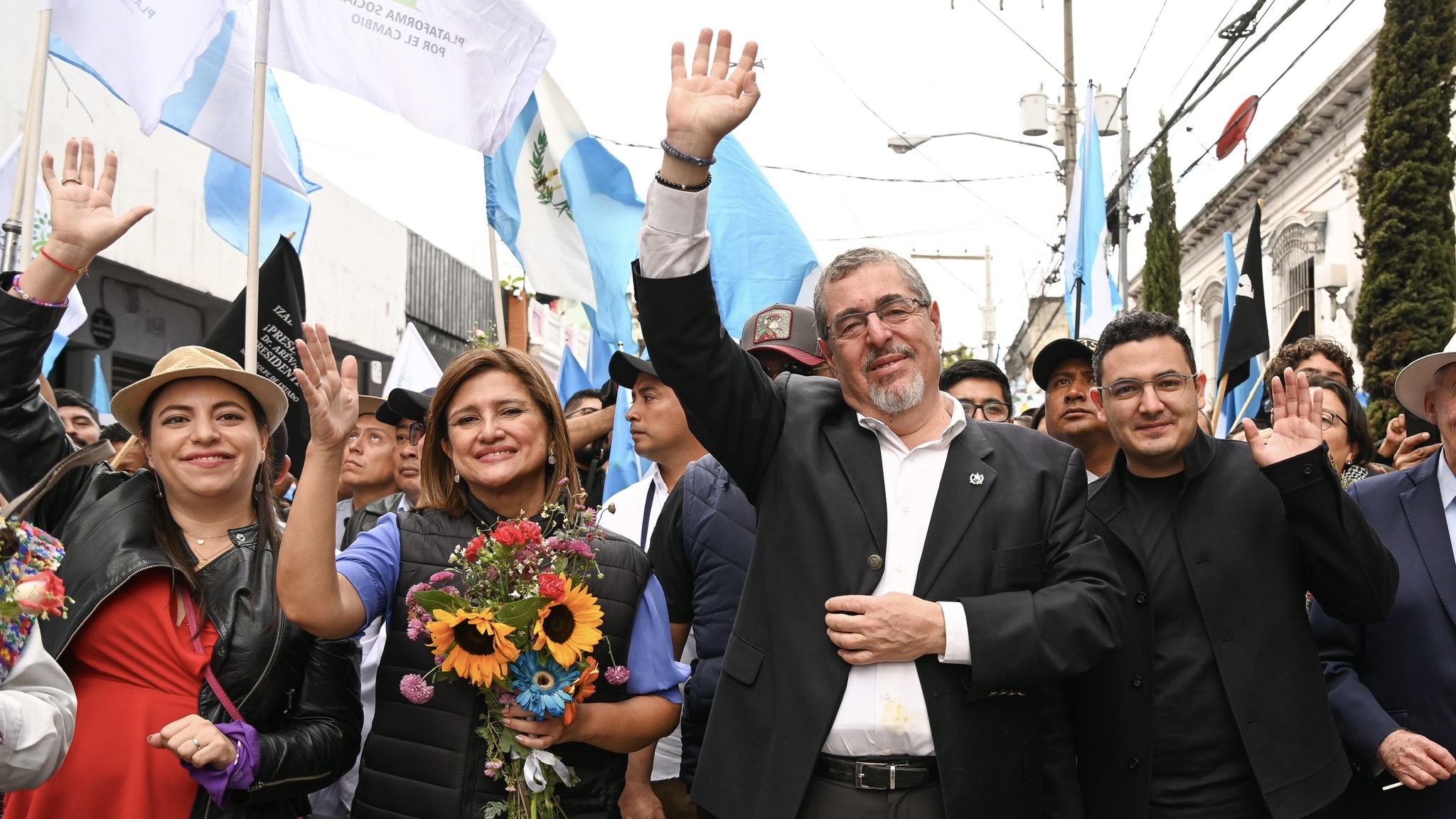Guatemala’s Prosecutor’s Office announced on December 8 that the elections held this year which saw the victory of progressive Bernardo Arévalo de León, must be annulled due to alleged administrative irregularities of the Supreme Electoral Tribunal. The move comes after months of maneuvers by the office to undermine the validity of the elections, and even Arévalo’s ability to participate, through attacks on his party and the electoral process.
The president-elect of Guatemala, Bernardo Arévalo, stated “we are facing an absurd, ridiculous and perverse coup d’état.” Arévalo won the elections with 58% of the votes in August.
“It is time to vigorously defend our voice and the possibility of building a different country. No one should come between the people of Guatemala and their spring,” said Arévalo de León.
“The coup plotters are giving their [last desperate] kicks, the last shaky steps for a coup d’état,” said Arévalo, who added that these actions come from a group of senior officials who operate from the Prosecutor’s Office (MP).
In the same sense, the 64-year-old president-elect said that “the coup attempt is real and has brought us to a crucial moment in the history of our country.”
Meanwhile, the president of the Supreme Electoral Tribunal (TSE) of Guatemala, Blanca Alfaro, stated on Friday December 8 following the declarations from the Prosecutor’s Office that there is no way to repeat the elections and that the elected authorities must take office in their respective positions in January.
Alfaro told the press that the results obtained in the past elections “are already validated, made official, and are unalterable.”
“We have a presidential duo that already has their credentials, that our president is Don Bernardo Arévalo, and our vice president is Mrs. Karin Herrera,” she reiterated.
Furthermore, she explained that they do not have any power to annul the elections “except for a ruling issued by the Constitutional Court.”
Alfaro asserted that they have already finished with the 2023 electoral process and that the authorities are duly accredited, so they must take office this January 14 and 15, respectively, “otherwise, there will be a breach of the constitutional order.”
“There is no way that the Supreme Electoral Tribunal can repeat an election,” she said.
What’s behind the coup?
Arévalo has alleged that the MP presented the investigation to try to prevent the presidential inauguration on January 14, 2024 from going forward.
“The coup group that occupies the MP has made very clear the intentions of the illegal actions they have carried out in the last year, they began with repression to restrict the freedom to express ourselves,” said the president.
According to the Guatemalan politician, these actions by the MP are part of a larger plan that the investigative entity has been putting together. “They continued with the persecution of the social and political organization, today they are exerting pressure and extortion against any official who opposes and doesn’t follow their illegal instructions,” he condemned.
Read more: Mobilizations continue in Guatemala against impending “coup”
The MP has stated that Arévalo’s party, Movimiento Semilla, has an alleged irregular affiliation. However, the allegation is based only on a statement from a former worker of the Supreme Electoral Tribunal (TSE). This evidence has yet to be revealed to Arévalo and his party, and has only been referenced in statements from the MP.
Another accusation against the political group is an alert that was activated by the Special Verification Office (IVE) for an alleged suspicious transaction of USD 44,000, which the authorities’ allege could have been a case of possible money laundering.
However, “The USD 44,000 that were reported, are even known in a loan contract that we signed with a person who is affiliated with the party in order to pay the fine that was imposed on us by the TSE, it is perfectly documented and registered,” Arévalo explained.
Lawyers for the group said they have a clear legal route, since they will have to respond to the new pretrial requests presented against the president-elect and two party deputies.
Social movements and organizations in Guatemala have already begun mobilizing to reject the “attempted coup” and have demanded that their votes and democracy be respected.
Internationally, the move has also been widely condemned by political leaders and international bodies such as Colombian President Gustavo Petro, Josep Borrell the High Representative of the EU for Foreign Affairs and Security Policy, and the Organization of American States (OAS).





